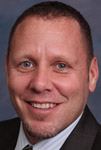 Public health professionals from across the country will convene in Atlanta, Georgia, on 23-25 February 2011 for the annual Public Health Preparedness Summit. The 2011 Summit will focus on the National Health Security Strategy (NHSS), an initiative – released in early 2010 by the U.S. Department of Health and Human Services (HHS) – that provides a framework for a broad range of stakeholders to build and sustain the capabilities that will enable the United States to achieve national health security. The two primary goals of the NHSS are to build community resilience and to both strengthen and sustain the nation’s health and emergency response systems. The Summit will offer a variety of plenary, town hall, interactive, and sharing sessions devoted to addressing the primary objectives of the NHSS and related policy issues.
Public health professionals from across the country will convene in Atlanta, Georgia, on 23-25 February 2011 for the annual Public Health Preparedness Summit. The 2011 Summit will focus on the National Health Security Strategy (NHSS), an initiative – released in early 2010 by the U.S. Department of Health and Human Services (HHS) – that provides a framework for a broad range of stakeholders to build and sustain the capabilities that will enable the United States to achieve national health security. The two primary goals of the NHSS are to build community resilience and to both strengthen and sustain the nation’s health and emergency response systems. The Summit will offer a variety of plenary, town hall, interactive, and sharing sessions devoted to addressing the primary objectives of the NHSS and related policy issues.
This year’s opening keynote address will be given by Richard Serino, Deputy Administrator of the Federal Emergency Management Agency (FEMA), who has over 35 years experience in emergency management and emergency medical services. Serino plans to discuss FEMA’s role in building the nation’s resilience to prepare for, respond to, and recover from disasters and other public health emergencies. As the nation’s primary response leader, it is critical that FEMA partner with other federal agencies – and with other private- and public-sector organizations and agencies – toentify response gaps and ensure that the necessary capabilities are in place to respond to events that have the potential to adversely affect the nation’s critical infrastructure.
Throughout the coming year, public health preparedness leaders, and members of Congress, will focus considerable attention on the reauthorization of the Pandemic and All-Hazards Preparedness Act (PAHPA), which was first passed by Congress in 2006. PAHPA was, and is, a critical legislative milestone for the preparedness field; it established the first Office of the Assistant Secretary for Preparedness and Response (ASPR) and provided the funding needed to build much of the public health preparedness infrastructure, especially in the area of medical countermeasures research and development.
A prestigious panel of federal public health leaders also will share their perspectives during the 2011 Summit on the future of the Pandemic and All-Hazards Preparedness Act through the reauthorization process. The panelists now scheduled include Rear Admiral Nicole Lurie, Assistant Secretary for Preparedness and Response; Dr. Alexander Garza, Assistant Secretary and Chief Medical Officer of the DHS (Department of Homeland Security) Office of Health Affairs; Dr. Robert Kadlec, former Special Assistant to the President for Homeland Security; Dr. Ali S. Kahn, Director, Office of Public Health Preparedness and Response of the Centers for Disease Control and Prevention; and Brian Kamoie, Senior Director for Preparedness Policy, of the White House National Security Staff.
The final day of the conference will feature closing remarks by Dr. Thomas Frieden, Director of the Centers for Disease Control and Prevention, who plans to address the CDC’s role in measuring state and local preparedness through a newly reformed Public Health Emergency Preparedness (PHEP) grant program. The PHEP program will focus on the strengthening of 15 capabilities in such critical areas as surge management, incident management, countermeasures and mitigation, biosurveillance, information management, and community resilience.
For additional information on the 2011 Public Health Preparedness Summit visit www.phprep.org
_________________________________ Jack Herrmann is the senior advisor for public health preparedness for the National Association of County and City Health Officials (NACCHO). In that role, he oversees the organization’s preparedness portfolio, which is aimed at strengthening the preparedness and response capabilities of local health departments. He also serves as the organization’s chief public health preparedness liaison to local, state, and federal partner agencies, and chairs the annual Public Health Preparedness Summit. He also has extensive experience in disaster management and response and has participated in numerous disaster relief operations with the American Red Cross. Herrmann holds a bachelor’s degree in Sociology from St. John Fisher College, and a master’s degree from the University of Rochester (N.Y.).
